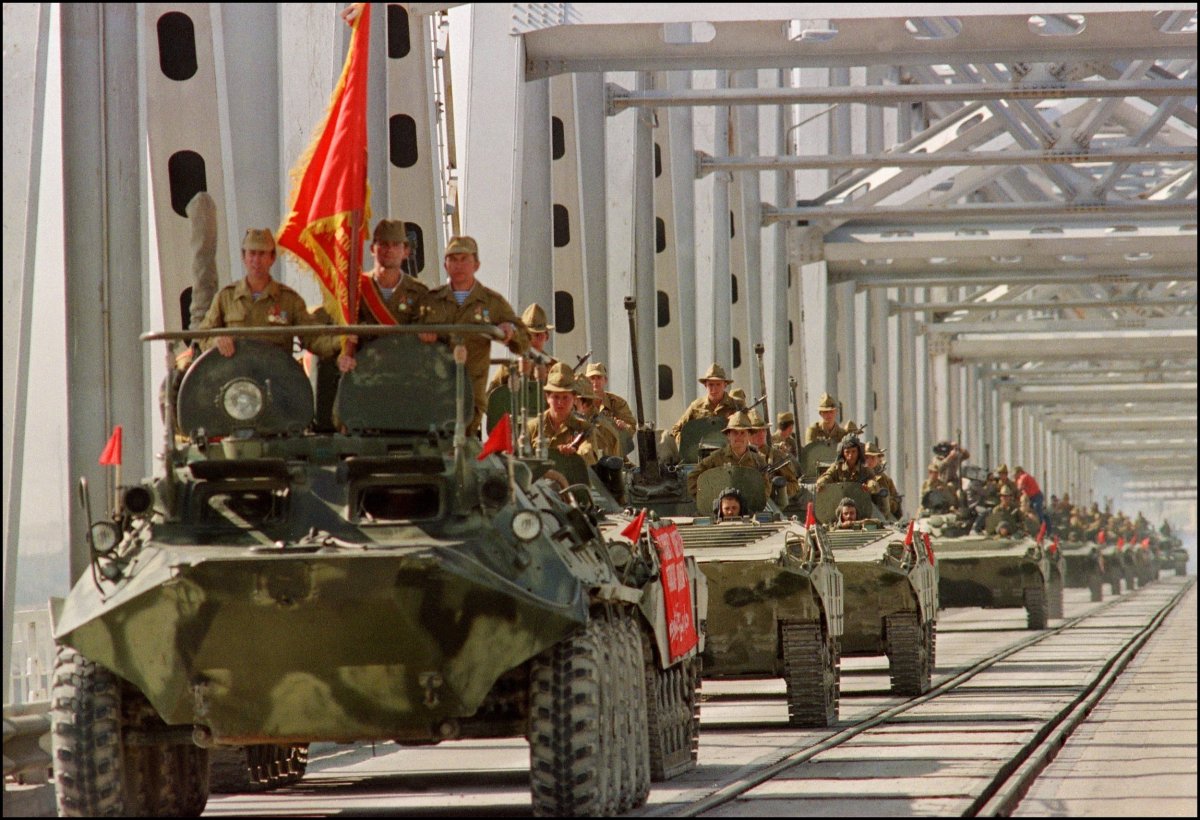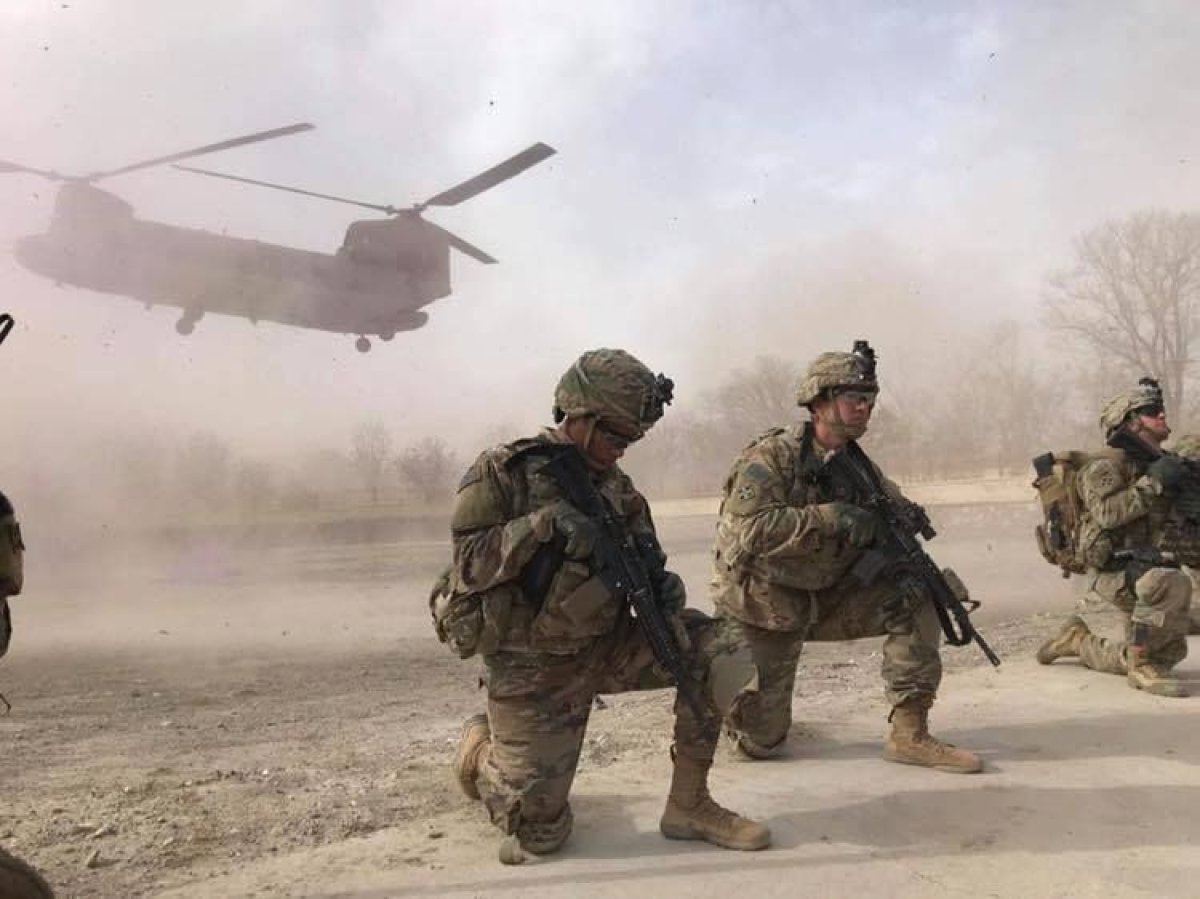President Donald Trump has called for Russia and others to take a more active role in the conflict in Afghanistan after claiming that involvement there was responsible for the collapse of the Soviet Union.
During a press conference Wednesday at the White House, Trump blasted the United States's extended involvement in Afghanistan, where it has waged its longest war against the Taliban Islamist militant group. He said that Washington was currently in talks with various actors, including the Taliban, in search of peace, but then called on regional powers to step up.
"India is there, Russia is there, Russia used to be the Soviet Union, Afghanistan made it Russia, because they went bankrupt fighting in Afghanistan," Trump said in response to questions over whether he planned to scale down U.S. military presence in the war-torn country.
"So you take a look at other countries, Pakistan is there, they should be fighting. But Russia should be fighting, the reason Russia was in Afghanistan was because terrorists were going into Russia, they were right to be there, the problem is it was a tough fight and literally they went bankrupt, they went into being called Russia again as opposed to the Soviet Union," he added.

The Soviet Union's direct role in Afghanistan began after the 1973 coup that ousted the ruling monarchy and established the Republic of Afghanistan, which sought closer relations with Moscow but later opposed what was perceived as growing Soviet influence there. The left-wing People's Democratic Party of Afghanistan then led the 1978 Saur Revolution that established the communist Democratic Republic of Afghanistan.
The country was soon thrust into one of many ongoing conflicts tied to the larger Cold War for global influence being waged by the U.S. and the Soviet Union, and the CIA began to offer covert support for the mujahideen, a name referring to Islamist insurgents seeking to overthrow the government. The Soviet military intervened directly in 1979 and fought a long, costly war that ended with a total withdrawal in 1989 and the collapse of the government in Kabul three years later.
Around this same time, the Soviet Union itself also began to dissolve, with various republics declaring independence and the central government in Moscow officially designating Russia to be a sole, independent entity in 1991. Though many point to the fall of the Berlin Wall in 1989 as being one of the most definitive moments signaling the end of Moscow's then-cash-strapped conglomerate of socialist states, historian Niall Ferguson argued in a 2009 Newsweek article that "the events of 10 years earlier—in 1979—surely have a better claim to being truly historic," one reason being that the "Soviets began their policy of self-destruction by invading Afghanistan."
The fall of the Soviet Union did not mean the end of Moscow's involvement in Afghanistan, however, as Russia joined Iran, India, Turkey, the U.S. and others in supporting the country's Northern Alliance, a united front attempting to stave off a total takeover from the Taliban, which had become the dominant force in the unrest that followed the fall of the Soviet-backed government.
The Taliban had all but secured the country by 2001, declaring it the Islamic Emirate of Afghanistan. After the 9/11 attacks by Al-Qaeda in September of that year, however, a U.S.-led coalition of nations intervened to reverse Taliban gains in search of the allied group that perpetrated the hijackings. Since then, the U.S. has spent nearly $7 trillion on war on terror conflicts that have killed at least half a million people. In Afghanistan especially, the calls for a change in policy have been raised as the Taliban reclaimed more land than at any time since the initial phases of the NATO Western military alliance intervention.

Though the U.S. has accused Russia and Iran of quietly supporting the Taliban to spite the Pentagon's efforts, both countries have hosted talks with the two sides of the Afghan conflict and have sought to step up their role in a proposed peace. Washington has attempted to bring Kabul and the Taliban together for talks, but progress has stalled. Reports that Trump would follow up last month's announcement of a Syria withdrawal with a partial U.S. pullout from Afghanistan have emboldened regional powers.
Pakistan and India, two longtime rivals, have also sought to stake a claim to Afghanistan's future, as has China. Despite inviting Pakistan to play a more active role in Afghanistan, Trump also said Wednesday that he cut $1.3 billion aid to the South Asian country "because they haven't been fair to us," claiming "they house the enemy, they take care of the enemy."
Trump said during his debut Afghanistan policy speech in August 2017 that he would not pursue "nation-building" and instead focus on "killing terrorists." At the same time, the Republican leader came to office vowing to cease "endless wars" launched by his predecessors around the world and has urged other nations to take greater responsibility in maintaining global security.
Uncommon Knowledge
Newsweek is committed to challenging conventional wisdom and finding connections in the search for common ground.
Newsweek is committed to challenging conventional wisdom and finding connections in the search for common ground.
About the writer
Based in his hometown of Staten Island, New York City, Tom O'Connor is an award-winning Senior Writer of Foreign Policy ... Read more
To read how Newsweek uses AI as a newsroom tool, Click here.








